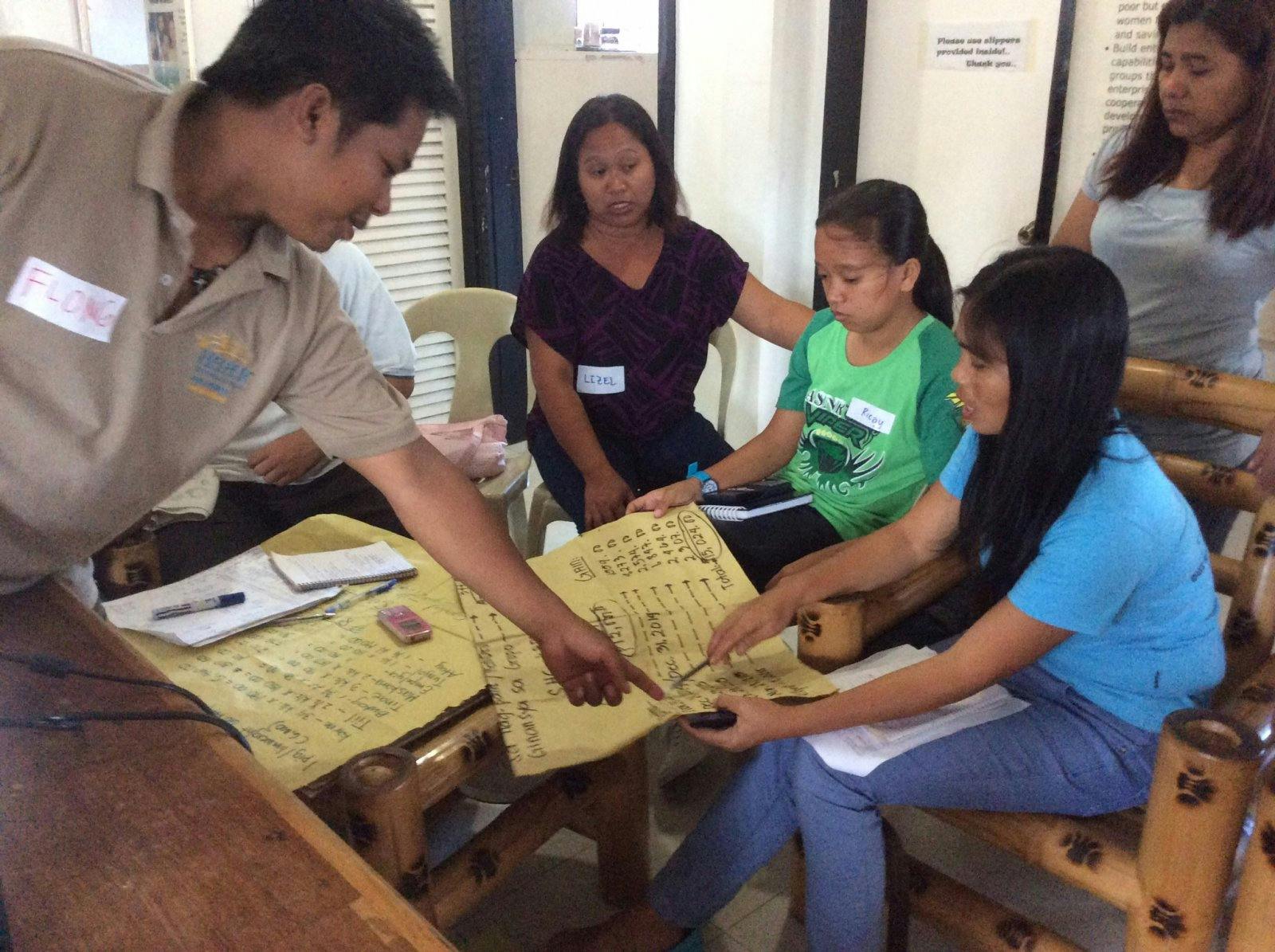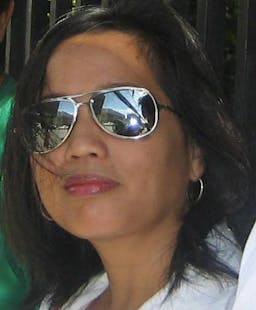From Piggy Bank to Profitable Business
May 28, 2019
Story

Women backyard hog raisers computing their cost of production and studying ways to make it profitable.

Abeth Buling is a typical rural woman in the rural areas in the Philippines, who raises hogs as sort of a piggy bank . As a piggy bank, the pig upon selling, gives no profit but serves as ready source of cash. It is something that can be sold to cover mergency needs like illness or wedding. Growing only two pigs behind her backyard, she is considered as a subsistent producer who barely makes a profit from the endeavor.
Based on studies made on the local hog industry conducted by Heifer International Philippines in 2013, subsistent backyard swine raisers make up the single biggest subsector as they contribute 66% of the hog population in the country. But as subsistent producers, they provide the bulk of the cost of production but gets only 10% of the profit or even nothing.
On the other hand, other players along the chain, like the village agent, livestock trader, and meat dealer, who provide lesser value added cost, get the bigger profit. This indicates that swine industry in the country is still inefficient and with very high production costs which often then not is absorbed by the small and subsistent hog producers.
To enable these subsistent hog raisers who are mostly village women, to have a more equitable share of the profits and contribute to their economic empower, there is a need to improve their production and feeding practices and to effectively link with the market.This means that Abeth and other women like her must not only produce livestock but must also study and engage the market for her hog raising to become profitable and viable, rather than just a “piggy bank” that produces no profit.
In response to this situation,Luntiaw Mindanaw Inc., which has been working with and among rural women in several areas of Mindanao, the largest island of the Philippines, implement a project called Improving Natural Productivity and Enhancing Capacities of Rural Farming Households Within Taguibo Watershed (In – Peace). The project aims to transform these subsistent farming families into productive farmers and farmer-entrepreneurs meeting their food needs and creating self-employability in the rural areas.InPEACE is supported by two funding partners, the Heifer International Philippines and the Belgian Government-DISOP International to meet the goal of reach out to 1,600 rural families and helping them towards economic and social empowerement.
So, Abeth and the women in her village organized themselves into self-help group that meets regularly to get training on sustainable farming, livestock management, and learn about how to improve their production practices and know the economic of raising pigs so that they can take the most profitable opportunity . An important strategy of the project is the education and community affirmation on basic values of sharing and caring, participation, transparency and gender equality. Abeth is also trained as an community animal health worker and help other women in the village take care of the common diseases affecting their pigs, which is a important support that village hog raisers need to prevent an outbreak of disease.
The value chain approach that Luntiaw Mindanaw Inc., uses in building the local capabilities, opened her eyes to the opportunities and challenges not only of producing pigs but also of how to get the most profit from their pigs. Luntiaw Mindanaw Inc., facilitated a series of activities wherein they were given calculators to calculate how much it cost them to produce 1 kilo of meat and assess critically how they can maximize their profit given that local traders would often buy their hogs at much lower price.They visited several buyers to inquire about their demands, quality requirements and terms of payment wherein towards the end, they can compare which of the local buyers have the best terms. This also led them to organize themselves into clusters so that they can undertake collective marketing of their hogs themselves.The cluster also serve as production support in terms of continuous learning of improved production among themselves.
Now, on weekly basis, Abeth and her cluster buy harvestable hogs from its members and butcher it and sells the meat to the people in the village. This resulted in an increase of 20% of the profit compared to that of simply allowing traders do the marketing and selling of pork meat. Aside from that increase of income, raising hogs has its additional benefits: the children are made more responsible as they share the daily task of feeding the hogs and keeping the pigsty clean when they come home from school. Her husband who works for a local construction is supportive of her work as a community animal health worker and helps out during weekend. Now, the group has also set up a local store that sells veterinary and feeds supplies , to serve the growing number of households raising livestock in their village.
There is still a lot of things their group intends to do, like setting up a their own feedmill so that they have a cheaper source of quality feeds and to raise capital for this. They also need to link with microfinance in order to upscale their production. Their group need further strengthening since some members are not cooperative. But Abeth is excited of the future plans and that mood is shared by many of women in the neighboring villages when the InPeace project is implemented.




